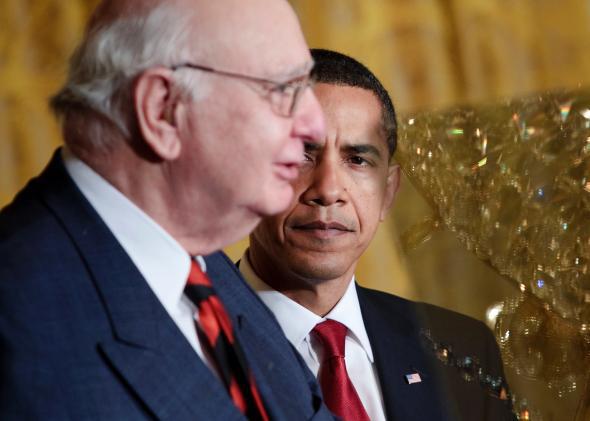The Volcker Rule is exhibit a for the argument that tough rules to curb Wall Street abuses are easier to describe in brief than to write in detail. The basic idea, written into law by congress, is that banks benefitting from government guarantees shouldn’t be allowed to do speculative trading.
Great idea.
But there are also supposed to be some exceptions to this. Banks are supposed to be able to hedge their risks and do “market-making” trades on behalf of their clients.
So now the problem is that you have to write a detailed rule. A rule that allows for all legitimate cases of hedging and market-making will probably also open up large loopholes for proprietary trading. A rule that genuinely extirpates proprietary trading will probably trample on various instances of real hedging and market making. Life is complicated, and you often have to choose between overreach and loopholes when writing rules. And initially regulatory agencies seemed to be very much tilting toward writing a version of the rule that left plenty of loopholes in place. But there’s been a late-game rally by advocates of a tougher version of the rule that’s delaying finalization. Bart Chilton of the Commodities Futures Trading Commission says there are too many loopholes, and Kara Stein the new Democratic member of the Securities and Exchange Commission seems to have similar concerns.
The question of how you’d ideally like to do this strikes me as very difficult. But as a practical matter, I think it’s a no-brainer that you want to start by erring on the side of a strict rule. Once the rule is in place and running, let banks try to make the case that there are some useful and important things they want to do that have been ruled out of bounds. The odds of a too-lax rule getting stricter over time are extremely small.
